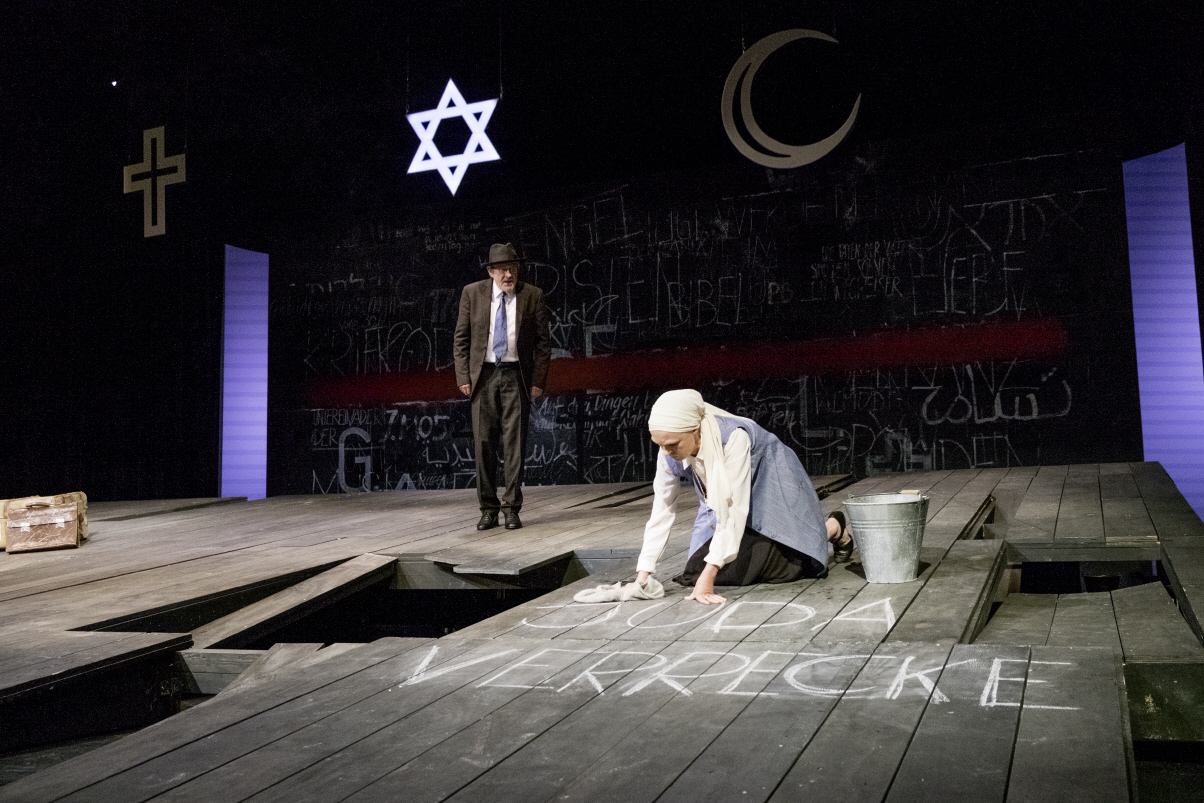Critical Kinships, Contemporary Alliances.
Cultural Studies, Community Voices, and the Problem with Belonging.
I’m fortunate. I’ve been awarded a reasonably hard-to-get Leverhulme Research Fellowship to write the book I’ve long been meaning to write, which is entitled Ambivalent Relations. German Islamic Kinships, 1750-1918. As the title implies, it’s historically focussed and pitched to an academic audience. Yet, as my work progresses, I cannot help but hear the voices of others resonate within my own writing and reflect, too, on how the book’s core questions, which probe critically German cultural traditions of embracing and exploring shared values and origins with the Islamic world, in fact grew out of my close work with Muslim communities. These were questions, though, that were born more of an experience of friction and difficulty, than of any sense of idyllic collaboration.
When I began my public engagement work back in 2015, I quite quickly learned several lessons. My work, in its published, academic form, might not appeal to or offer any obvious value to my non-academic partners – that was clear enough. More confronting, though, was the experience of not being trusted. Whether personally or institutionally, many of the groups and individuals I met, whilst perfectly polite and hospitable in meetings, were wary of working with me. Yet understandably so.
I soon learned that many of my interlocutors had lived experiences of being studied, analysed, and reported on, only to be left behind by researchers, who quite swiftly moved to the next project without sharing any benefits and insights gained from the collaborative work in a clear and mutually equitable manner. Yet many of the community leaders, activists, artists, and curators I met in fact feared something even more than this exploitation. As they wondered about working with me, they asked themselves what, in partnering with a white academic from a Russel Group university, they would be expected to say, to do, and to participate in? What agenda, visible or otherwise, might they be asked to serve? And what of their voices, representation, agency, and identity – and their relations to and standing within their own communities? So even as these relationships developed and deepened, many questions remained for my collaborators: what was going to be the cost, to them, of building alliances and working together? What might they lose of themselves in their partnerships, friendships, and kinship with me?
In most cases, the drive to be transparent, to remain open to criticism, and to share concerns and even vulnerabilities has seen us through this period. In some cases, the passage of time and the opportunity to show demonstrable results and also longstanding commitment and resilience have all helped engender trust. In the interests of maintaining that transparency, though, I’m compelled to acknowledge the direct impact my community relationships have had upon my writing. In combing through German history and culture, reading literature, scholarship, travel writing, political writing, and examining visual culture such as photography and illustration, I am asking precisely the same questions as my collaborators: how does the embrace sought after, the affinities explored, and the kinships established in the cultural works of German speakers colour their representation of Islam? What cultural specificity do Muslims lose when represented within these new relations with the West?
So much criticism dedicated to this field, from Edward Said’s seminal Orientalism (1978) with its famously self-confessed gaps on German culture, to the conceptually nuanced responses it has produced by scholars of German over the last four decades, have focussed on the various ways in which European culture externalised the so-called Orient, rendering it ‘other’, related to Europe only by embodying all that Europe was not, transforming it into both a locus of desired exoticism or a feared and degenerate enemy. My work, folding in and working through the questions asked by my British Muslims contemporaries, inverts this paradigm and seeks out friendships, bonds, kinships and even family connections between Muslims and Germans in all manner of contexts.
Yet in so doing, it seeks to retain a critical edge. For instance, when in G.E Lessing’s famous play Nathan der Weise (‘Nathan the Wise’) (1789), which plays out in Jerusalem during the Crusades, an affection develops between the character of Recha, the adopted daughter of the play’s wise, eponymous Jew, and a Knight Templar captured by the Muslim forces of Sultan Saladin, their young love cannot be allowed to blossom. A late reveal in the drama shows Recha and the Christian von Stauffen to be twin siblings, joint offspring of a Christian mother and a Muslim father, who is no other than Saladin’s own brother. Learning that the Sultan had previously spared von Stauffen on account of a perceived yet unspoken facial 'similarity' to his late brother, audiences might reflect on series of critical questions: do we only embrace members of other faiths when they resemble us? If we think of our collectives as ‘familial’, what happens to those who do not fit into the family, be it organised around bloodlines or other characteristics? And, ultimately, how inclusive are our inclusive models of humanity?

The play, usually celebrated as a model of tolerance and harmony, also brings to light various of the problematic gaps in Western universal thinking. The very act of including a particular other within our relationships and communities can, by default, lead us to exclude others – at the denouement of Lessing’s play, the Jew Nathan remains external to the newly disclosed ‘family’ – or lead us to accept more insidious models of belonging which only permit the inclusion of that which has been assimilated, domesticated, and begun to resemble more closely a set of normative characteristics – to resemble, that is, ourselves. The concept of critical similarity (Bhatti and Kimmich, 2015), which underpins many of the kinships I examine in my book, can describe both a nuanced attempt to recognise resemblance whilst preserving distinctiveness (‘we are alike, though we also differ as we relate’), though also a problematic pull towards similitude that threatens that distinctiveness (‘we must be more alike in order to relate’). Thinking critically about similarity, about how closely we have to resemble or align with those we work or ally with, culturally, ideologically, and politically, remains a question of burning relevance today. I hope my book will go some way to provoking thought in this area.
Once again, I’m fortunate. Fortunate not only to be funded to write that book, but also to be able to acknowledge and reinvest critical questions asked by my off-campus partners within my own work. It has given the book a new internal coherence and, I feel, a renewed external relevance. The traditional demarcations of contemporary politics continue to be broken down and redrawn, left and right, progressive and conservative, national and global. Many of us find ourselves stepping away from older affiliations and into new alliances, often forged around our views on the tortuous and highly polarising crises in Gaza, Sudan and elsewhere. Within these shifting contexts, retaining critical awareness of what we and our allies stand to gain as we group and regroup, though also what keeps us mutually distinctive and, by implication, what we all stand to lose, would appear to be a more than valuable insight.
a UK academic exploring Islam through global history and culture.
